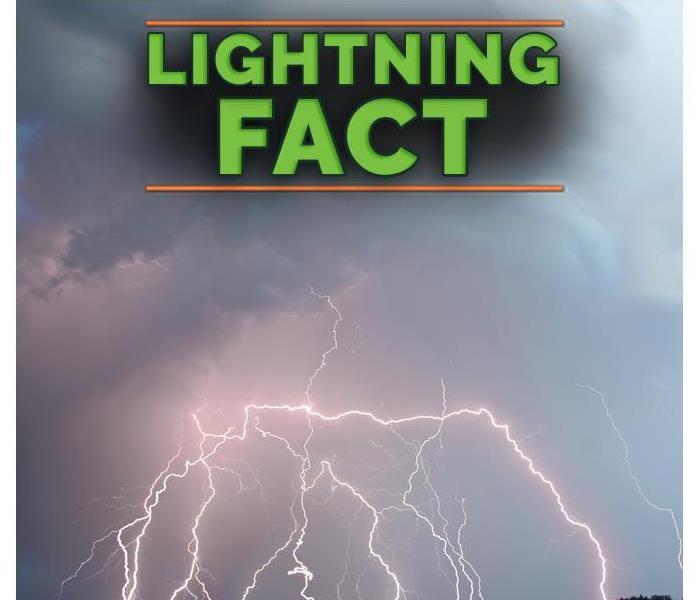Lightning-Caused House Fires are Seriously Dangerous
7/31/2019 (Permalink)
Lightning is an incredibly common event. Every second, there are around 45 flashes of lightning globally, and the power of just one strike in Bensenville, IL, can easily cause a lightning fire. The U.S. averages about 51 deaths and nearly 23,000 fires caused by lightning strikes per year. While only about 18% of fires caused by strikes occurred in homes, they caused the majority of deaths, injuries and overall losses.
Lightning Fire in Houses
Studies show that while less than 1/5th of lightning fires occurred in homes, they accounted for
- 88% of civilian deaths associated with lightning caused fires,
- 77% of the associated injuries, and
- 70% of the direct property damage
Lightning-caused house fires are responsible for around nine deaths, 53 injuries and over $450 million in property damage each year on average. The ubiquity and power of this natural force is often overlooked – until something dreadful happens.
Another problem caused is damage to electronics. Some power companies offer a lightning-protection device that they install in your service box. While not perfect, this has been shown to mitigate a great deal of damage to devices and in some cases may be guaranteed to cover losses.
What to Do If Your Home Is Struck by Lightning
Lightning can be insidious – if you know your home has been struck, call the fire department. As electricity, it always takes the path of least resistance, meaning the damage can be hidden. Attic fires have been known to develop and smolder for quite some time before showing symptoms of fire damage. Its path can branch out and go totally unexpected routes, so it’s best to be safe. The fire department can come out and inspect your home for hidden dangers.
Dealing With the Aftermath of a Lightning Fire
With luck and a proactive approach, you can keep the damage very limited. However, once a fire has caused significant smoke damage, you should contact your insurance agency in Bensenville, IL, to file a claim. The residue from a fire is often toxic and difficult to locate and remove so insurance will normally pay for a professional fire damage cleanup.





 24/7 Emergency Service
24/7 Emergency Service
